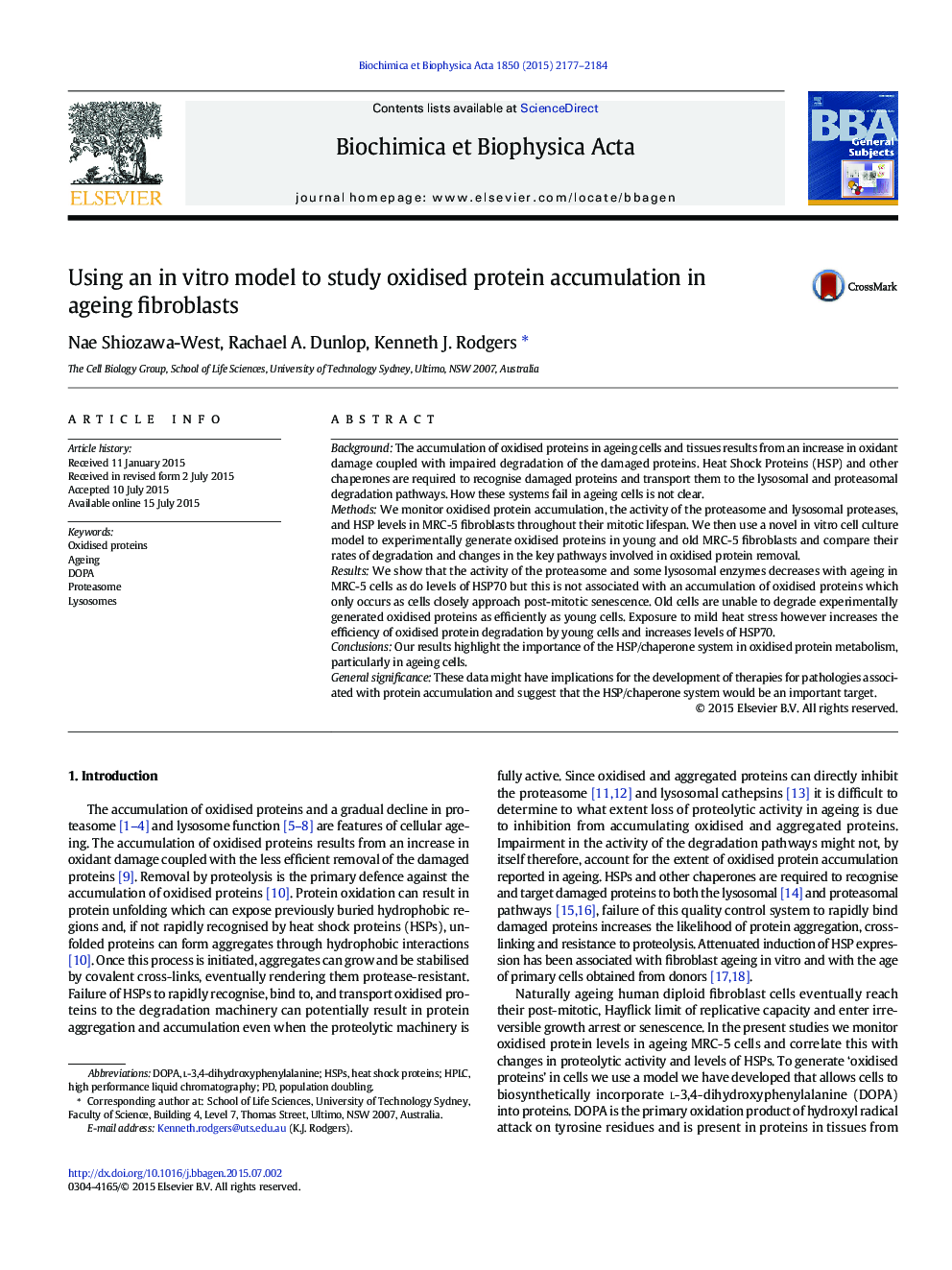| کد مقاله | کد نشریه | سال انتشار | مقاله انگلیسی | نسخه تمام متن |
|---|---|---|---|---|
| 1947388 | 1054601 | 2015 | 8 صفحه PDF | دانلود رایگان |

• There is a decline in proteasome activity and levels of HSP70 with MRC-5 cell ageing.
• Cells utilise l-DOPA for l-tyrosine to generate ‘oxidised’ aggregate-prone proteins.
• Older MRC-5 cells degrade DOPA-containing proteins less efficiently than young cells.
• HSP70 levels in older MRC-5 cells increase in response to DOPA and heat stress.
• Mild heat stress increases oxidised protein turnover in older MRC-5 cells.
BackgroundThe accumulation of oxidised proteins in ageing cells and tissues results from an increase in oxidant damage coupled with impaired degradation of the damaged proteins. Heat Shock Proteins (HSP) and other chaperones are required to recognise damaged proteins and transport them to the lysosomal and proteasomal degradation pathways. How these systems fail in ageing cells is not clear.MethodsWe monitor oxidised protein accumulation, the activity of the proteasome and lysosomal proteases, and HSP levels in MRC-5 fibroblasts throughout their mitotic lifespan. We then use a novel in vitro cell culture model to experimentally generate oxidised proteins in young and old MRC-5 fibroblasts and compare their rates of degradation and changes in the key pathways involved in oxidised protein removal.ResultsWe show that the activity of the proteasome and some lysosomal enzymes decreases with ageing in MRC-5 cells as do levels of HSP70 but this is not associated with an accumulation of oxidised proteins which only occurs as cells closely approach post-mitotic senescence. Old cells are unable to degrade experimentally generated oxidised proteins as efficiently as young cells. Exposure to mild heat stress however increases the efficiency of oxidised protein degradation by young cells and increases levels of HSP70.ConclusionsOur results highlight the importance of the HSP/chaperone system in oxidised protein metabolism, particularly in ageing cells.General significanceThese data might have implications for the development of therapies for pathologies associated with protein accumulation and suggest that the HSP/chaperone system would be an important target.
Journal: Biochimica et Biophysica Acta (BBA) - General Subjects - Volume 1850, Issue 11, November 2015, Pages 2177–2184